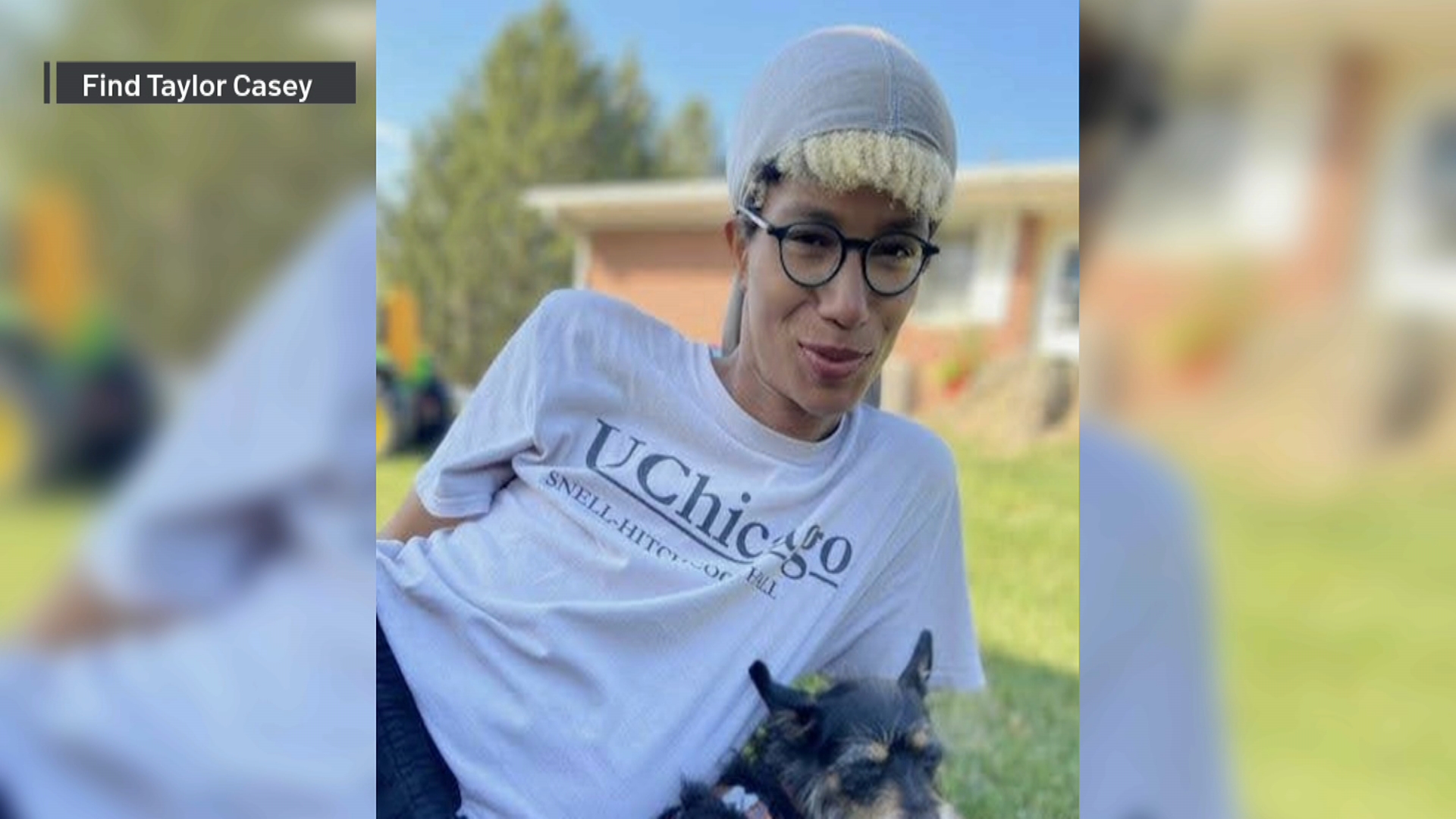New COVID-19 booster shots specifically targeting the omicron variant could be set for authorization by the end of this week, Chicago's top doctor said.
Both Pfizer and Moderna have sought regulatory approval from the Food and Drug Administration to offer the "bivalent" shots, which would target both the original COVID-19 virus and omicron subvariants that have become the dominant strains of COVID in the United States.
"So if the vaccine is authorized by the FDA and approved by the CDC, some of which may happen this week, vaccination could potentially begin as soon as the week after Labor Day," Chicago Department of Public Health Commissioner Dr. Allison Arwady said during a Facebook Live Tuesday. "So that's as soon as potentially next week."
Sources told NBC News that the FDA plans to evaluate and potentially authorize updated versions of both boosters sometime around Labor Day, citing two people familiar with the discussions. But with the Centers for Disease Control and Prevention's advisory panel scheduled to meet on the topic Thursday and Friday, some experts expect decisions to be announced by the end of the week.
Here's everything we know about where things stand with booster shots.
Which Companies will Offer Omicron-Specific Boosters?
Both BioNTech, manufacturers of the Pfizer COVID vaccine, and Moderna have asked the FDA to authorize their updated COVID booster shots, with both requests coming out this week.
News
The Pfizer and Moderna vaccines are both “bivalent vaccines,” designed to specifically target not only the original COVID-19 virus, but also to target omicron variants as well.
The move follows a recommendation from the FDA to modify vaccines to target the BA.4 and BA.5 omicron subvariants, the latter of which is responsible for nearly 90% of current COVID cases in the United States.
Feeling out of the loop? We'll catch you up on the Chicago news you need to know. Sign up for the weekly Chicago Catch-Up newsletter here.
When Will the New Boosters be Authorized and Who Will be Eligible?
Sources told NBC News this week that the FDA plans to evaluate and potentially authorize updated versions of both boosters sometime around Labor Day, citing two people familiar with the discussions.
The Centers for Disease Control and Prevention's advisory panel is scheduled to discuss the topic Thursday and Friday.
The updated booster shots will likely be authorized for anyone over the age of 18 who has yet to get a second booster shot, and the Biden administration is preparing to distribute the boosters to eligible individuals under the age of 18 as well, officials said.
But a government rollout plan anticipates that people who've already gotten their initial vaccinations would qualify for one of the new combination shots, regardless of how many boosters they've already had.
Chicago's health department also expects anyone 18 or older who has received their preliminary doses to be eligible for both Moderna and Pfizer, with Pfizer's updated vaccine potentially approved for those as young as 12.
"This is all pending the FDA and CDC this week, but what we're hearing is it's likely to be anybody aged 12-plus, who has completed their primary series," Arwady said. "So that would be about 1.8 million Chicagoans, or about 77% of our age 12-plus population, we are expecting to be eligible for the updated vaccine... the bottom line is, even if you didn't get a booster in the past, we are expecting that you will be able to get this booster."
Dr. Peter Marks, the FDA's vaccine chief, is aiming for a very simple message: “It’s probably going to be everyone who has not had a booster within the past X number of months should go out and get the booster in a timely manner,” he said. Officials still have to decide just how many months, though.
The final determination, however, is up to the CDC, which called a meeting of its influential vaccine advisers next Thursday and Friday to help decide.
Pfizer wants to open its updated boosters to everyone 12 and older who’s already had a primary series of today’s vaccine, while Moderna has applied only for adult use. The CDC will determine if people at highest risk should go first. Studies of doses for younger children are expected later in the year.
How Well Will the New Shots Work?
Since July 2, the BA.5 omicron subvariant has been the dominant strain of COVID in the United States, and according to Chicago’s top doctor, that is a good thing for the updated vaccines.
Arwady said that the continued dominance of BA.5 has prevented another COVID variant from taking a foothold, and could mean that boosters will be even more effective in preventing breakthrough infections and serious illness.
“My concern was that we may see a new variant emerge before we got the new vaccine, and you’d be right back where you started,” she said. “If this pattern can hold, and we can quickly roll out this updated vaccine in September, and we see a lot of good uptake, it would, I think, have the potential to really help cut the risk of breakthrough infections, and have a significant impact on transmission.”
According to the latest CDC estimates, the BA.5 subvariant is responsible for nearly 89% of COVID cases in the United States, with BA.4 and BA.4.6 making up a large chunk of the remaining 11% of current cases.
Marks said Thursday that once authorized, the tweaked boosters could help right away — while BA.5 infections still are too high — as well as hopefully blunt yet another winter surge.
Marks told the Associated Press that the new boosters could rev up the immune system to prevent not just serious illness but maybe milder infections, too, like the original vaccines did earlier in the pandemic, before super-contagious mutants emerged.
“The hope here is that by better matching things, not only will we get that benefit or even more, but we'll also have that last for a longer period of time,” he said.
But Dr. Paul Offit, a vaccine expert at the Children’s Hospital of Philadelphia and an FDA vaccine adviser, said the antibody jump from that earlier BA.1-tweaked candidate was “underwhelming.”
“What the administration is asking us to do is to accept this bivalent vaccine as significantly better” than another dose of today’s vaccine, he said. “It would be nice if there were data to support that.”
While FDA hasn't made a final decision, Marks said there's evidence that the updated boosters are safe and that waiting for more study of their effectiveness would risk another mutant appearing before they could roll out.
They “essentially refresh the immune response,” he said. “Granted, it’s still a bit of a guess how long it will last but, this is doing our best.”
Given how outdated the current shots are, an update makes sense, said Dr. Walter Orenstein of Emory University, a former vaccine director at the Centers for Disease Control and Prevention. While he’d like to see more data, he plans to get the new booster.
When is the Best Time to Get Your COVID Booster Shot?
How long to wait after your last vaccine dose or an infection is a critical decision, immunologists agree. That’s because if you still have a lot of antibodies in your bloodstream, they’ll counteract the brand new antibodies that the vaccine dose is supposed to produce.
So if you already got a booster in July or August and then seek the new combo shot in September, “you’ll receive very little additional boosting from that,” Penn's Wherry said. He recommends waiting four to six months.
The CDC also will weigh in after after considering how many doses will be available in early September versus later in the fall. The Biden administration has purchased more than 170 million doses.
There has been some confusion over whether individuals should wait until omicron-specific boosters are available in order to get their next shots, but according to most experts, individuals who are over the age of 50 or who are immunocompromised should go ahead and get shots sooner rather than later.
Currently, the CDC is recommending that adults between the ages of 18 and 49 get a booster shot five months after they’ve completed their sequence of Moderna or Pfizer vaccines, or two months after their Johnson & Johnson single-dose vaccine.
A second booster dose has not yet been recommended for those age groups, unless individuals have preexisting conditions that make them more susceptible to serious COVID illness. Those individuals would be eligible for boosters four months after receiving their first booster shot.
Children who are five years of age and older are recommended to receive a booster five months after receiving their two-dose Pfizer vaccine series. Children who have had the Moderna vaccine are considered up to date at this time.
The FDA’s updated guidance could potentially recommend omicron-specific boosters to adults under the age of 50 beginning in September, but it is unclear when that guidance could be released.
How Were the Shots Tested?
Pfizer and Moderna both studied an earlier tweak to their vaccines that targets the original omicron, called BA.1, that hit last winter, as well as even earlier variants.
To evaluate the combo shots, FDA is using data from human testing of the BA.1-tweaked doses plus mice tests of the BA.5-targeted version that Marks said show “a very good immune response."
Human data on the newest tweak will come later in the year, to help assess the value of modified shots — especially whether they offer cross-protection if a new mutant comes along, Marks said. Moderna has started a clinical trial of its BA.5 combo shot; Pfizer and its partner BioNTech expect to open a similar study soon.



